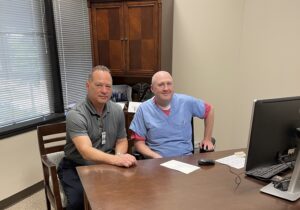Increasingly, neurosurgeons are employed by large hospital systems[1]. One of the most common reasons cited by neurosurgeons is the desire to focus on patient care, leaving the business focus to the hospital system. While this desire to “focus on taking care of patients” may seem admirable, and even desirable, it removes the neurosurgeon from activities such as coding, personnel and management decisions, which can be critical in establishing and maintaining a successful practice. Despite the lack of complete control over many of these activities, there are steps that can be taken to ensure that each neurosurgeon has an influence on, or connection with them.
Large hospitals and hospital systems often employ a cadre of professional coders responsible for the proper coding and billing of the clinical, surgical and hospital activities of neurosurgeons. While frequently out of sight, the coders should not be out of mind for the employed neurosurgeon. These individuals are often specifically trained for the coding of neurosurgical procedures. They can assist physicians in numerous ways. First, they maximize the return on services for both the physician and the hospital. Many employed physicians have production targets or are paid through a Relative Value Units (RVU) multiplier. Capturing all appropriately done procedures and encounters can directly affect your salary. Additionally, generating increased revenue for the hospital through increased billing or elevating the hospital Diagnosis-Related Group (DRG) score creates greater influence for the neurosurgeon, which can often be leveraged into additional resources (e.g., more clinical staff, additional advanced practice providers, an increased capital budget for the operating room). Professional coders can prevent improper coding and billing, thus protecting the physician from potential legal and licensing issues. Proper coding can decrease the rate of insurance denials for necessary medical treatments for patients. Coders can clarify the documentation necessary for the billing of certain codes, decreasing time required to answer specific questions and create addendums to the medical record. Recent graduates will benefit from increased help with coding as they prepare cases for submission for board certification.

While the importance of coders may seem obvious, the development of a good working relationship will require time and effort, but will pay many future dividends. There are several ways to create a good working relationship with your hospital coder. First, it is important to know and understand who is doing your coding. In many institutions, coders are assigned to cover specific specialties. Make it a point to know your individual coders by name and get to know a little bit about them. This not only builds a good relationship with them, but will help you understand their training and expertise.
Respond promptly to any coding inquiries and strive to be available to them either through the electronic medical record, email or phone. I would suggest an initial meeting with an organization’s coders whenever beginning a new employment. As new partners and advanced practice providers are added to the practice, encourage them to sit down and meet with the coders. I have attended these training sessions multiple times with my advanced practice providers to emphasize the importance of proper coding and documentation, as well as refresh my own knowledge and understanding.
If recurrent issues arise with certain procedures, enlist the coders’ help to develop standardized language to use in your notes to prevent future issues. In my clinic, preoperative patients undergo smoking cessation counseling; difficulty was encountered with appropriate documentation for billing. With our coder’s help, a template was developed that appropriately described our smoking cessation intervention and counseling while meeting the documentation criteria for billing. For non-urgent coding questions, I have found it helpful to keep a list of specific coding questions on my desk. I will add to it when I have questions concerning specific topics. Once my list reaches 5-10 questions, I email them to my coder and set up a meeting in one to two weeks to discuss them. Since he has the questions beforehand, he comes prepared with researched answers and typically leaves me with referenced documentation that I can refer to as the occasion demands. With more urgent questions, I will typically send him a detailed email with specific questions. For example, on difficult revision spine cases, I will often send him the patient medical record number, describe the procedure and present a list of codes stating “I would code this particular procedure with these codes. I am not sure if I should use code X or code Y. Which do you feel is the best?” These questions are generally responded to very quickly and have led to discussions that have greatly increased my knowledge of coding. Finally, I would recommend advocating for your coders. Some organizations do not provide any funding for their coders to attend continuing education courses. Ask their supervisors to support the coders with time and money to attend neurosurgery-specific coding updates.
The employed neurosurgeon may feel it unnecessary to interact with hospital coding personnel. However, establishing and maintaining an excellent working relationship with these individuals offers significant benefits to the employed neurosurgeon.
[1] Menger R, Pennicooke B, Barnes T, et al. Commentary: Impact of hospital and health system mergers and acquisitions on the practicing neurosurgeon: Survey and analysis from the council of state neurosurgical societies medical Director’s Ad Hoc representative section. Neurosurgery. 2018;82(6):157-163.








